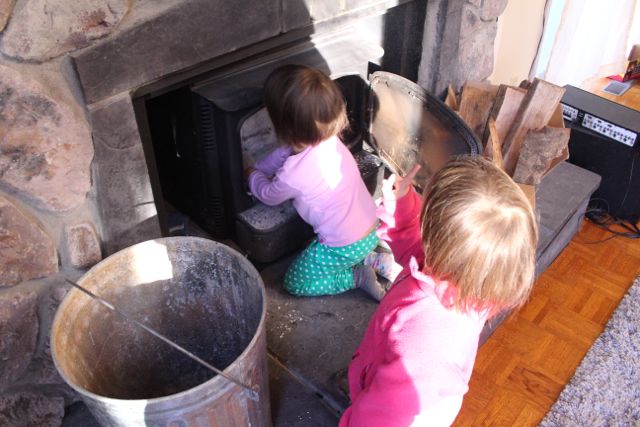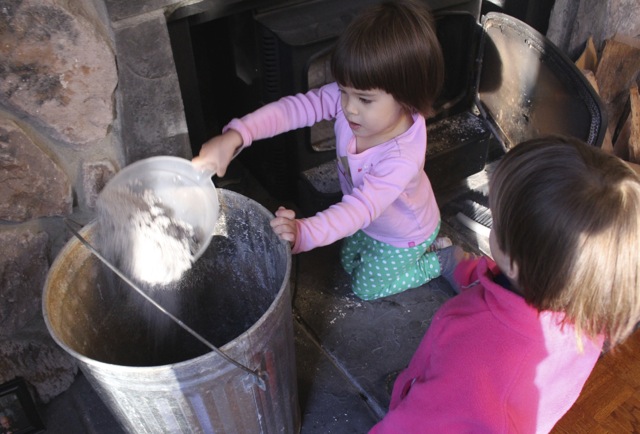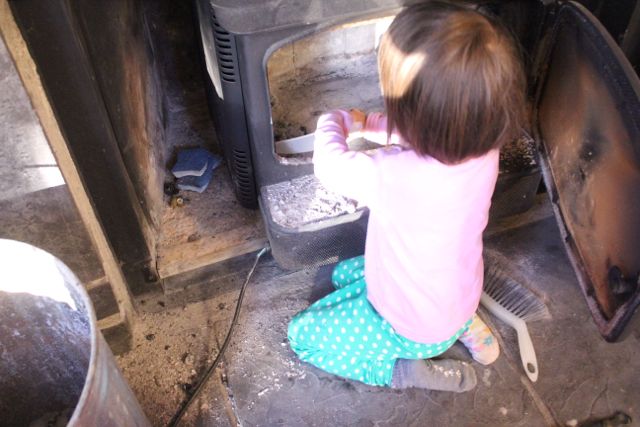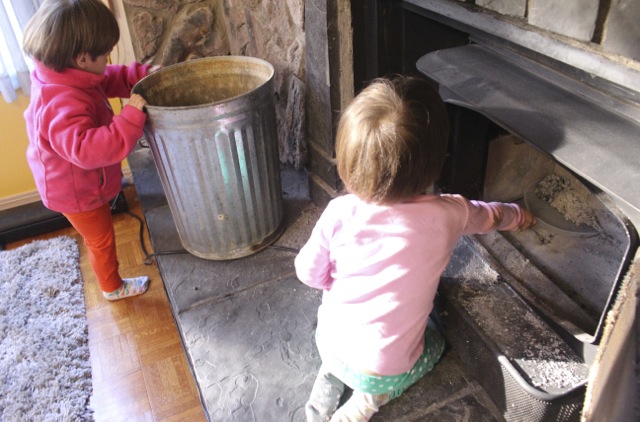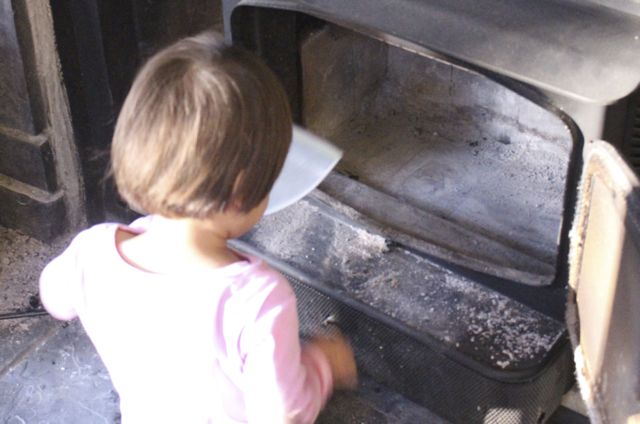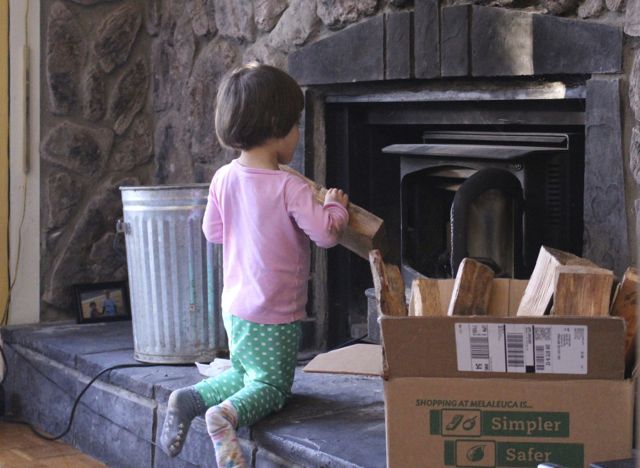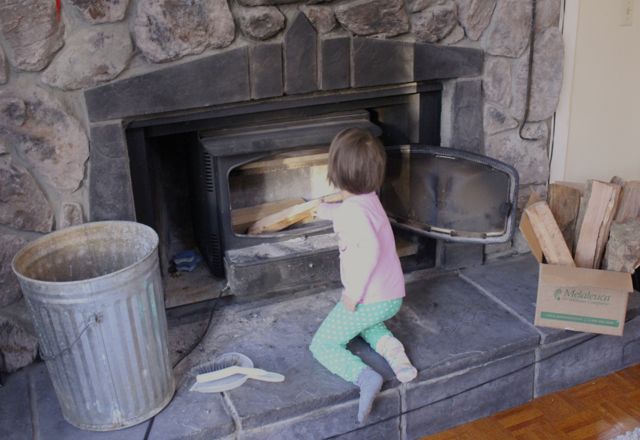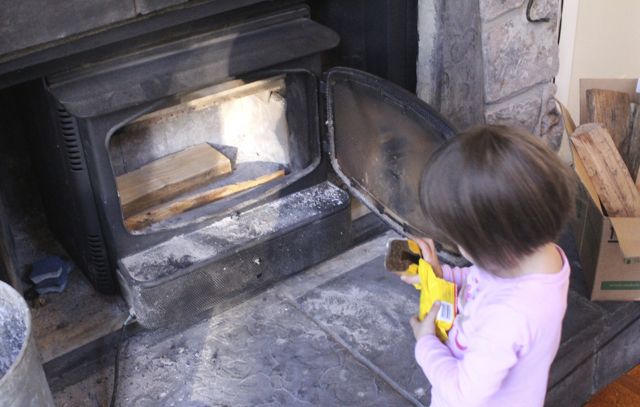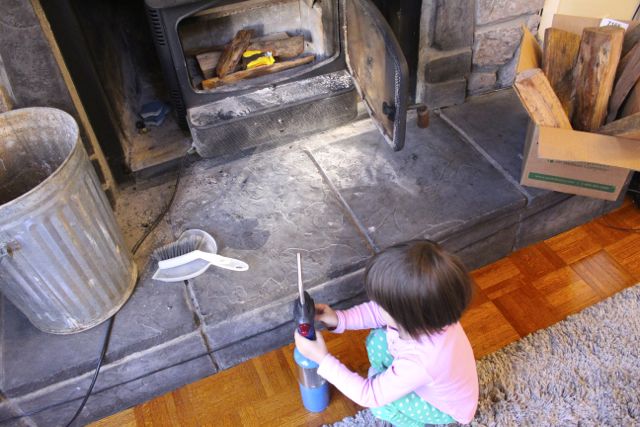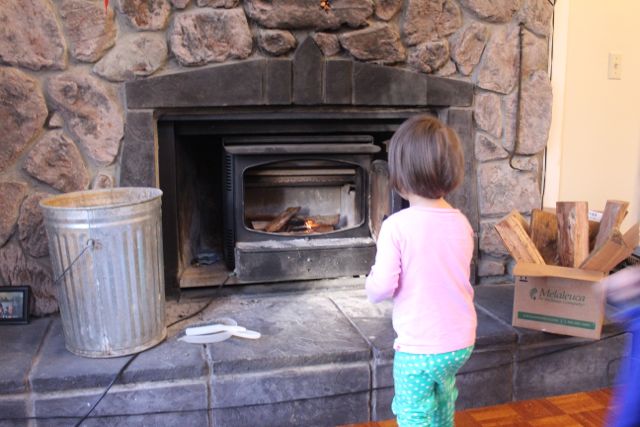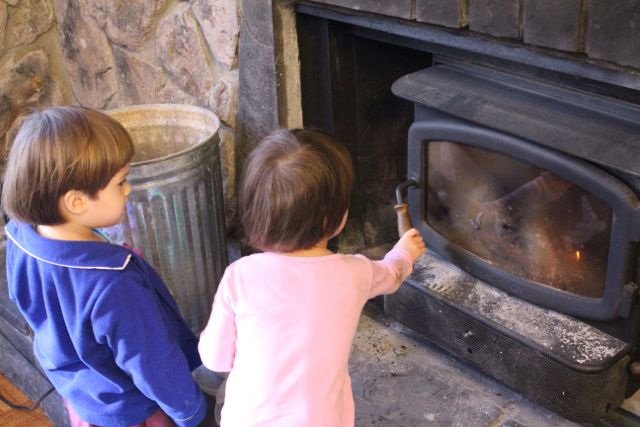
M (3 years, 1 month) hammering a screwdriver into a piece of plaster to find dinosaur bones
Parents ask me about discipline more than any other questions. What do I do if my child hits, screams, cries or throws tantrums?
When I address this question straight on, I can offer parents band-aid solutions. We all need something to fix the problem now. However, what I’m really interested in is working with parents to find permanent solutions. Bad behavior is never what it seems – there is always a root cause hidden underneath.
Dr. Montessori’s own story provides a clue to the conundrum of bad behavior. An Italian physician, who worked with special needs children in psychiatric hospitals, Dr. Montessori became a sensation when her students passed the regular state exams, many of them with flying colors. She questioned how her methods would work with regular children. When a new housing project for migrant workers went up in Rome, the officials couldn’t figure out what to do with the children while their parents were at work. This is how Dr. Montessori came to be entrusted with 40 3-6 year olds children.
Her methods produced miraculous results. In one year, aristocrats, scholars, teachers and parents around the world started visiting her school at the news of 4-year-olds spontaneously writing. And not just that. The dirty, sullen, timid children of poor, illiterate workers had become polite, self-disciplined, graceful and independent little human beings.
Montessori writes about her experience in The Absorbent Mind, “The disorderly became orderly, the passive became active, and the troublesome disturbing child became a help in the classroom. This result made us understand their former defects had been acquired and were not innate. But all these disturbances came from a single cause, which was insufficient nourishment for the life of the mind.” (p.199, Kalakshetra)
Herein lies the answer to tantruming, screaming, difficult children: “insufficient nourishment for the life of the mind!”
So how can we give our children sufficient nourishment for their minds? Let me offer a few places you can start with:
1. Help them do it by themselves. Mackenzie has to constantly remind me with her little shrieks, “BY MYSELF!” That little shriek (and sometimes full-blown crying) is an act of self-preservation. She needs to learn to do things by herself and become independent. The survival of the human race has depended on our drive for self-sufficiency. If I’ve undone the button for her, opened the door for her or poured the milk for her, I’ll just go back two steps and button the button, or close the door or pour the milk back – and let her do it. That is not spoiling or giving in to her, that is giving her the help she really needs. Do you ever just pick up your child without asking? Do you ever just do things for them because you’re on automatic – serving them dinner, cleaning up after them, putting on their clothes? Yes, it’s automatic for us parents, but if you’ve got a tantruming child, see if you’ve just intruded on their independence and made them into babies. If there is anything they hate, it’s being a baby all over again.
2. Give your children plenty of opportunity to work with their hands. Play kitchens are fine, but pretend cooking with a plastic skillet will never require the kind of hand-eye coordination, care and attention that real pancakes on a skillet would require. Dolls and cars are great, but activities like hammering a nail, sewing with a needle, cutting with scissors are even better for their developing hand and intellect. And your child thrives on perfecting his coordination and abilities. Provided everything is child-sized, those kinds of activities make them happy, independent and trusted. Expect them to become fully absorbed and do things you never imagined young children doing. A child at 18 months and over can start using many kinds of kitchen utensils. B and M used their first pair of scissors at 19 months, cut with knives at 20 months and made scrambled egg here at 22 months. Watch what this Montessori mom does with her little one.
3. Children will do best when activities build on the skills of previous activities. Instructional scaffolding improves learning. If your child has never poured water before, don’t put them in front of a hot skillet to pour eggs. To learn pouring, a young toddler can start with stacking cups in the tub, then given a pitcher and glass at meals to pour his own milk. You can then teach her to pour through a funnel before letting her pour faster, runnier things like eggs. Let your child peel first bananas, then mandarins, then eggs. Let your child help mix things – first something liquid, then something heavier like batter before moving on to salads and spaghetti. Yes, the kitchen is a great place to build skills!
If your child is throwing a tantrum, screaming, hitting, yelling, calling you names, you need to address the behavior. You’re more than likely to encounter resistance though. But a child who is concentrating on doing something with his hands and absorbed in that activity isn’t interested in throwing a tantrum. He’s too busy. And usually, you’ll find that when he comes out of a period of concentration, he’s happier, lighter and more ready to do what you ask.
I’ll leave you with one final thought: young children need lots of collaboration. If they don’t want to do something in the moment (even though they did it so well yesterday), their brains are not developed enough to have the kind of consistency you want and expect from adults. Today, they may just need a little more help. But not too much help – just enough till they can take over.
